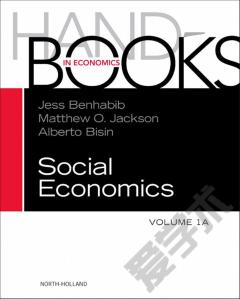Handbook of Social Economics
How can economists define and measure social preferences and interactions? Through the use of new economic data and tools, our contributors survey an array of social interactions and decisions that typify homo economicus. Identifying economic strains in activities such as learning, group formation, discrimination, and the creation of peer dynamics, they demonstrate how they tease out social preferences from the influences of culture, familial beliefs, religion, and other forces. It advances our understanding about quantifying social interactions and the effects of culture. It summarizes research on theoretical and applied economic analyses of social preferences. It explores the recent willingness among economists to consider new arguments in the utility function.
{{comment.content}}








 京公网安备 11010802027623号
京公网安备 11010802027623号